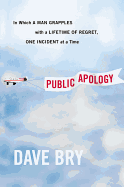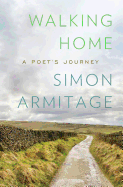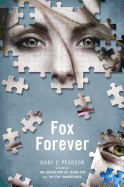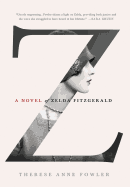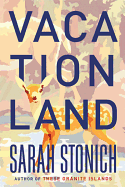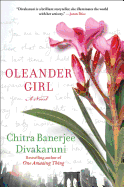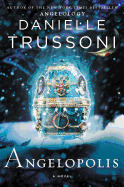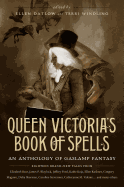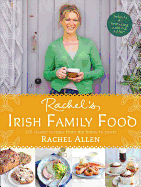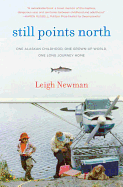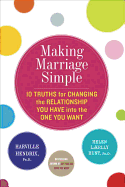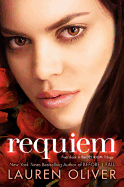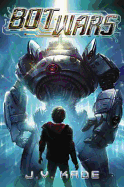Friday, March 29, 2013
When I worked at University Book Store in Seattle, one of my great pleasures was creating table and window displays. Sometimes I'd get burned out after one too many themed displays. I'd start to toy with, say, the Mother's Day table, throwing in a sex manual or carpentry book to leaven the cookbooks and sentimental titles. Without a date-specific theme, I'd sometimes wander even further off the charts, randomly picking a title and proceeding with free association. For instance, a picture book titled Balls would lead to By the Balls then Cake Balls then Ball Four then Four Hour Body then... you get the idea. Or I'd use titles that made a story: Sum It Up: Daring Greatly: Things Fall Apart: Strong at the Broken Places: Unbroken.
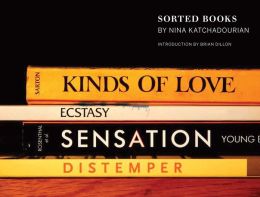
Two books constitute a formal exchange: I Am a Conductor with And do you also play the violin? Or a brief Cliffs Notes: Romeo and Juliet, They Rose Above It, Codependent No More. Advice: The Art of Conversation, Listen Listen Listen. Criticism: Van Gogh, Alone with the Moon, Crackers. Double-take: The Castrati in Opera, The Story of Organ Music. Narrative: Animal Dreams, Secret Gardens, Where the Sidewalk Ends, No Boundary, Where the Wild Things Are.
In addition to the ingenuity and whimsy, bibliophiles will appreciate the spines and the covers--books as tactile, compelling objects, promising worlds of knowledge and enjoyment. And perhaps we'll look at our shelves a bit differently, and start rearranging with a wild vision. --Marilyn Dahl, editor, Shelf Awareness for Readers
Z: A Novel of Zelda Fitzgerald
by Therese Anne Fowler
It's tricky to write a novel about a person who, now deceased, was once in the public eye. Therese Anne Fowler has pulled it off and then some, by depicting Zelda Sayre Fitzgerald in living color. Fowler's style is as flawless as Zelda's always was; they are the perfect match.
Zelda Sayre was a 17-year-old Montgomery, Ala., belle when she met F. Scott Fitzgerald at a dance. They were from different worlds: he was a Yankee and not a rich boy, despite graduating from Princeton; she was quite the opposite. They married, left for New York and began a life of excess in every department: romance, glamour and tragedy.
Scott called Zelda "The First Flapper," for her avant-garde attitude toward fashion and behavior. Scott was always working, more or less, on the next novel--the one that would bring in all the money they needed. Zelda followed along, occasionally asserting her own need for self-expression by writing, dancing or painting, but was ever thwarted. Scott had her short stories published under his name, guaranteeing publication as well as money. Zelda went along; she enjoyed what money could buy, so she sacrificed her artistic integrity for more and more of the good life.
What eventually undid them was Scott's out-of-control drinking, and both Zelda and Scott met untimely and tragic ends. Therese Anne Fowler has written a heartfelt novel about a woman out of her time, a woman whose talents were unsung, and she has brought a new understanding to a story we thought we knew. --Valerie Ryan, Cannon Beach Book Company, Ore.
Discover: Zelda Fitzgerald brought to life in living color and flawless prose, in a novel that surprises as it corrects our clichéd view of her life.
Vacationland
by Sarah Stonich
The old flannel-shirt, canned beer, worms-in-the-fridge esthetic of Northern Minnesota's cabin culture has been replaced by the sculptured landscaping of luxury resorts and ostentatious summer homes. With a wistful eye toward the bygone era of screen-door vacations, Sarah Stonich sets the thoughtful, atmospheric stories of Vacationland in and around one of these old-timey resorts near the Canadian border. Featuring a cross-section of archetypes--some typical to the area, some fish-out-of water--as they encounter the hidden world of the remote Naledi resort, Vacationland convincingly argues that organisms, be they jack pine or human, need to be hardy to survive at that latitude.
The stories hop around in time to provide a textured portrait of the Naledi resort and the sundry characters that walk its pine-canopied paths. Binding the stories together is Meg Machutova, an artist who lost her parents to a plane crash when she was very young and was raised by her grandfather, a Czech immigrant, at his resort. Through the eyes of sundry other characters, a picture emerges of Meg and her inability to ever completely leave Naledi even after its days as an active resort are long gone.
Despite a few regional characterizations that are maybe a little too broad, Vacationland is a faithful representation of this harshly beautiful place, the way it affects the people who live there and the lasting impression it leaves on those that are just passing through. --Cherie Ann Parker, freelance journalist and book critic
Discover: Stonich (These Granite Islands) shares a somber, atmospheric collection of intertwining stories set in and around a rustic resort in far northern Minnesota.
Oleander Girl
by Chitra Banerjee Divakaruni
Before she died in childbirth, Anu Roy instructed that if her baby was a girl, she was to be named "Korobi," after the beautiful and unexpectedly resilient pink oleander flower. Growing up in her grandparents' home in Kolkota (formerly known as Calcutta), Korobi is loved and well-educated, and when the 18-year-old orphan gets engaged to prosperous Rajat Bose, adulthood seems to be falling perfectly into place for her. But the sudden death of Bimal Roy, Korobi's grandfather, on the night of the engagement party is the first in a series of cracks in both families' foundations.
Korobi is the title character of Oleander Girl, but in telling her story, Chitra Banerjee Divakaruni (One Amazing Thing) also explores the stories of those around her, and it's the intersections and overlaps of those stories that make this novel engrossing reading. Korobi uncovers long-held secrets that will permanently alter her sense of self, but she's not the only one whose life is on the verge of change. All the characters, and their relationships with one another, will be tested over the course of the three months between Korobi and Rajat's engagement party and wedding date.
Divakaruni explores issues of class and politics in modern India and immigrant America, but the family issues at the heart of the novel give it a cross-cultural appeal. Told with empathy and intelligence, and accompanied by intrigue, the stories--and issues--of the Roy and Bose families should appeal to a broad range of readers. --Florinda Pendley Vasquez, blogger at The 3 R's Blog: Reading, 'Riting, and Randomness
Discover: An orphan's journey to learn who she really is sets the stage for a family's reassessment of its own identity.
Angelopolis
by Danielle Trussoni
With Angelopolis, Danielle Trussoni returns to the setting of 2010's Angelology--and though the new novel, like its predecessor, has major flaws, its strengths will redeem it in the eyes of many readers. Angelology fans will no doubt be eager to learn the fates of the story's protagonists after its cliffhanger ending, but those new to the series should not find it difficult to jump in without prior knowledge.
Trussoni's fiction has been compared to Dan Brown's, and justifiably so; her metaphysical action premise shares a sensibility with The Da Vinci Code, and there's a familiar air to academic turned angel-hunter V.A. Verlaine as he struggles with his romantic feelings toward a woman whose genetic legacy holds profound religious significance.
Angelopolis moves at a blink-and-you'll-miss-it pace, and Trussoni has a knack for creating wonderfully immediate images, as in this description of the Rhodope Mountains of southeastern Europe: "He saw gorges and valleys falling away in tiers, each new depth like a sheet of linen absorbing the inky night." Her heroes, despite their outlandish backstories, are genuine and sympathetic. Yet the novel's many enjoyable attributes are marred by occasionally clumsy dialogue and too much exposition--the tradeoffs of a complex plot and a breakneck pace. There's often so much going on that it's difficult to get invested in the scene or even the characters. The denouement in particular feels rushed, and readers should steel themselves for another cliffhanger ending. In spite of these drawbacks, readers willing to work a bit may find Angelopolis rewarding. --Katie Montgomery, book nerd
Discover: The sequel to Angelology is a lightning-fast read packed with killer angels, royal conspiracies, kidnappings and train-top chases.
Science Fiction & Fantasy
Queen Victoria's Book of Spells: An Anthology of Gaslamp Fantasy
by Ellen Datlow and Terri Windling, editors
For years, Ellen Datlow and Terri Windling have edited The Year's Best Fantasy and Horror, consistently one of the best annual anthologies of speculative fiction. They've recently begun to concentrate on more specific themes, such as Queen Victoria's Book of Spells--a collection of "gaslamp fiction" set in a 19th-century world where magic exists.
The anthology features a range of talent and tones, and the streets of Victorian London (and other locales) come weirdly and wonderfully alive throughout. Some stories are "fantasies of manners" that might appeal to any Jane Austen fan, while others serve a darker muse. Jeffrey Ford's "The Faerie Enterprise," for example, proffers a severe critique of the Industrial Revolution under its chilly veneer. The title story by Delia Sherman, in which a modern scholar attempts to unlock the great Queen's magically locked teen diaries, offers insight to the actual Queen Victoria as well as the sexual politics and gender disparities inherent in an academic setting. Ellen Kushner and Caroline Stevermer collaborate on "The Vital Importance of the Superficial," a wonderful epistolary short story that is as artful in what it reveals as what it conceals.
As is common in many of the anthologies that Datlow and Windling have edited, there is a small gem of an essay by Windling to start the proceedings. Her essay on the 19th-century English literature that inspired this collection is every bit as wonder-filled, learned and intellectually stimulating as the stories that follow. --Donald Powell, freelance writer
Discover: A great anthology of speculative fiction set in an alternate Victorian age where magic operates.
Food & Wine
Rachel's Irish Family Food: 120 Classic Recipes From My Home to Yours
by Rachel Allen
Don't leave your next St. Patrick's Day party to luck! Rachel Allen, a Ballymaloe Cookery School graduate and prolific cookbook author (Favorite Food at Home; Easy Meals), provides step-by-step recipes for 120 authentic and accessible Irish dishes in Rachel's Irish Family Food, along with bits of Irish history and regional culture from the country she loves.
Each recipe opens with a story of Allen's family--she is the third generation of Allens to cook professionally, having wed the son of her first teacher at Ballymaloe--or of the dish or its ingredients. She emphasizes fresh, seasonal and local, and offers ideas for experimentation; photos of the dishes are inspirational and helpful, and the shots of the Irish countryside as lovely as those in any travel brochure.
The friendly tone will make the home cook feel as if Allen is in the kitchen, too. She "translates" Irish references so Americans don't have to figure out, for example, that treacle is molasses, and she includes both metric and U.S. measurements. Meat and fish are abundant in the cookbook, as they are in Ireland, but vegetarian recipes are clearly identified; non-meat-eaters will find much to savor.
Irish Coffee Meringue Roulade, Sweet Scones, Salmon with Capers and Dill, Oysters with Guinness, and perhap the best Creamy Mashed Potatoes ever will delight diners longing for a taste of the Emerald Isle. --Cheryl Krocker McKeon, bookseller, Book Passage, San Francisco
Discover: Authentic Irish dishes from chowder to soda bread in this easy-to-follow cookbook by a Ballymaloe Cookery School graduate and instructor.
Biography & Memoir
Public Apology
by Dave Bry
Some people find a good old-fashioned unburdening of their past therapeutic. In Public Apology, David Bry takes this process a step further by writing letters to all those he has ever slighted--and the results are as funny as they are poignant.
Bry arranges his letters chronologically, from his childhood and college years and eventually into marriage and young parenthood. The early letters reveals Bry's finesse at evoking the particular intensities of childhood and adolescence. One long letter to a camp counselor recounts two summers Bry spent at camp; the romance, longing and alienation he describes are as evocative and descriptive as many novels with loftier literary ambitions. Bry also cleverly depicts specific humiliations of high school and college, floating so effortlessly from humor to searing self-observations about his previous incarnations that the book becomes an unexpectedly emotional reading experience.
One of Bry's funniest, most revealing letters describes playing hooky from school to attend a Sting concert. His lines about Sting's persona are some of the pithiest, most precise criticism ever written about the man; Bry, who's made his bacon as a record reviewer, knows how to describe the way we can latch on to three minutes of sound to cement our fluid identities.
Public Apology is a brilliant slice of memoir: funny, awkward and painful, but capable of making a person misty-eyed now and again. --Donald Powell, freelance writer
Discover: A funny, poignant slice of memoir as confessional letters.
Walking Home: A Poet's Journey
by Simon Armitage
As a memoir of traveling on foot, Simon Armitage's Walking Home is more a cousin to Bill Bryson's A Walk in the Woods than Cheryl Strayed's Wild. It's the amiable story of a 19-day ramble along the 256-mile Pennine Way, bisecting England from the Midlands to the Scottish border--at times a world of stunning beauty, but more often an "unglamorous slog among soggy, lonely moors, requiring endurance and resolve."
Instead of traversing the trail from south to north, as is the custom, Armitage decided to proceed in the opposite direction so he would finish in the town of Edale, near his home. The other reason for his choice of direction--the sense that this way he'd be walking downhill--turns out to be hilariously wrongheaded.
There are no wild animals or outlaws to menace Armitage along the way, but he recounts some frightening moments when he's lost in the mists of the Cheviot Hills or scrambling up a narrow path. The boggy moorlands Armitage navigates bring to mind the works of the Brontë sisters, and he remarks on the hordes of tourists (many of them Japanese) who flock to the ruined farmhouse at Top Withens that may have inspired the Earnshaw house of Wuthering Heights. Armitage shares the path at times with a motley crew that includes his wife and daughter and a college friend nicknamed Slug.
The appeal of a book like Walking Home turns largely on the likeability of its narrator, and Armitage scores high on that scale. Perhaps best of all, he concludes his journey in a way that's as surprising for its candor as it is completely satisfying. --Harvey Freedenberg
Discover: English poet Simon Armitage offers an engaging account of a 19-day trek across the spine of his native country.
Still Points North
by Leigh Newman
After a childhood spent shuttling between her Great Alaskan Dad in isolated Anchorage and her "Great American Instant Coffee Single Mom" in genteel Baltimore, Leigh Newman finds that her compass Still Points North. She shares her journey in a memoir filled with tales of surviving bears and flooded tents, as well as a mother whose insecurities force Leigh to develop a sense of self-sufficiency in the Lower 48 as well.
Despite the physical and emotional strife of her childhood, Newman obviously loves her parents. Her early years included learning survival skills from the caribou-hunting, salmon-fishing father she adored, and readers will hold their breath as Leigh and her dad submerge in icy waters, both literal and metaphorical, during an ill-fated fishing trip or establishing relationships with her new stepfamily. He taught her to pretend she was on a deserted island and had to figure out how to take care of herself, a principle she applied throughout her life.
When her mother ended her marriage and drove cross-country to her hometown of Baltimore, she took eight-year-old Leigh, introducing her daughter to crustless sandwiches and the National Gallery of Art. Manifesting the emotional effects of her own childhood insecurities, her mother spent money carelessly and worked long hours at a low-paying job; Leigh frequently had to fend for herself. After college, Newman became a globe-traveling journalist, though her search for a self-identity still drew on her eclectic roots. Newman is an inspiration--eventually embracing all of the quirky facets of her parents to create a family for herself. --Cheryl Krocker McKeon, bookseller, Book Passage, San Francisco
Discover: A memoir of a woman who grows up in her dad's Alaska and her mom's Baltimore, and draws on both to shape her own life.
Psychology & Self-Help
Making Marriage Simple: Ten Truths for Changing the Relationship You have into the One You Want
by Harville Hendrix and Helen LaKelly Hunt
Oprah Winfrey considers meeting Harville Hendrix in 1988 her "big lightbulb moment on relationships": the former minister, professor and therapist appeared on her show 19 times to promote his belief that we are subconsciously drawn to partners who share characteristics of our parents in order to heal childhood wounds. In Imago Relationship Therapy, marriage is treated as a spiritual partnership, with the intent to change how we see each other, ourselves and the world. Now, Hendrix and his wife, Helen LaKelly Hunt, have distilled the philosophy underlying this approach to Making Marriage Simple.
The couple turn their lofty aspirations for marriage into a series of concrete exercises designed to help couples transform entrenched conflicts into "teachable moments." Each exercise is paired with one of 10 relationship truths--"negativity is a wish in disguise," for example, or "incompatibility is grounds for marriage"--and can be done solo or with a spouse.
With these lessons, Hendrix and Hunt hope to create a "Relationship Revolution" that will transform not only problems in individual marriages but societal ills as well. They believe 90% of the conflicts within marriages are the result of unresolved issues from childhood that can be healed within the safe space of a loving, trusting partnership that views conflict as the opportunity for growth. Even individuals with therapy-averse partners can find value in the Imago philosophy, by learning to understand, for example, whether their partner tends to deal with stress as a "turtle" or a "hailstorm," or finding ways to better support their partner as well as meet their own needs. --Kristen Galles blogger at Book Club Classics
Discover: Anyone looking to strengthen a partnership or heal past emotional wounds will find value in Hendrix's model for a healthy marriage.
Children's & Young Adult
Fox Forever
by Mary E. Pearson
This finalé of the Jenna Fox Chronicles trilogy completes Locke's story, the focus of the second book, The Fox Inheritance. Because of his genetically engineered BioPerfect body, the Network has chosen Locke to execute a "Favor." They need their missing leader Karden and hidden funds in order to reunite a now-fractured United States, in which those who didn't choose sides are marginalized and denied rights.
Locke must ingratiate himself with the Secretary of Security's daughter, Raine. For Locke, whose consciousness was imprisoned for 260 years before being restored in his BioPerfect body, Raine is a kindred spirit. She, too, is a prisoner--constrained by her father's position in the government. "You looked so alone and lonely," Raine tells Locke. "I thought maybe I should be that someone who comes so you wouldn't feel all alone." Locke struggles to execute his Favor while also completing his personal mission of self-realization: "I need to live the life that Jenna wants me to live.... Can I ever catch up to Jenna?"
Pearson brings her Jenna Fox trilogy to a satisfying and emotional close, surpassing the excitement and tension of the first two books. The series as a whole deserves to be elevated above most dystopian fiction; its well-developed plot lines, poignant relationships and emotional truths will hit readers in both mind and heart. As Locke says, "It wasn't easy, but I guess things of worth rarely are." A wrenching read. --Jessica Bushore, former public librarian and freelance writer
Discover: In the conclusion to the Jenna Fox Chronicles, Locke wonders if he can become the man Jenna hopes he can be--or is he capable of even more?
Requiem
by Lauren Oliver
Lauren Oliver set up the key elements of her futuristic society in Delirium: Lena wanted to be "cured" of the ability to love (an "infection" called amor deliria nervosa); her best friend, Hana, did not want to be cured. Then Lena fell in love with Alex and they attempted escape into the Wilds--but only Lena made it. Or so she thought.
The chapters alternate between Lena and Hana. Readers learn that while romance has bloomed between Lena and Julian Fineman, son of the head of the DFA (Deliria-Free America), Hana has undergone the "cure" and is scheduled to marry Fred Hargrove, incoming mayor of Portland, Maine. Fred tells Hana, "a perfect golf game uses not a single wasted movement: Order, form, and efficiency are its trademarks." Fred plans to penalize any rebels by cutting off their electricity. He wants Hana to be "his caddy." But Hana is having misgivings, and Alex did not die.
For the first time in the series, the overriding governmental plots and plans trump the personal relationships. Lena's pull in two different directions, between Alex and Julian, takes a back seat to the government's infiltration of the Wilds in their attempt to round up or stamp out anyone outside of the cities' sanctioned borders--and their enlistment of the once-harmless Scavengers as murderous mercenaries. Lena and Hana both doubt their decisions, and readers will race to finish of this suspenseful and thought-provoking conclusion to Oliver's trilogy. --Jennifer M. Brown, children's editor, Shelf Awareness
Discover: The suspenseful conclusion to Lauren Oliver's Delirium Trilogy, with the final confrontation between "cureds" and "uncureds."
Bot Wars
by J.V. Kade
The robots in this futuristic novel fight back when threatened--in an ultimate battle of survival between man and bot.
The Bot Wars have left 12-year old Trout St. Kroix and his brother, Po, alone for the past two years after their soldier father went missing in Bot Territory. The war ends after thousands of casualties. The human citizens of the United District had grown too dependent on the services of robots, so they're dealing with a collapse of stores and factories after bots either fled or were dismantled. Some, like Po, suffer from the nerve-damaging Deeta disease, a result of the energy from X-bombs used in the war. But Trout just wants to find his father, and when his friend gets him media attention that goes viral, Po winds up missing. Trout must venture into Bot Territory with a robot named LT.
J.V. Kade's (a pseudonym for YA author Jennifer Rush) polished, fresh world-building brims with her own inventions and slang. The crux of the story comes with Trout learning about the Meta-Rise, a union of people and bots who support free will and the right to life. Exciting revelations surrounding his father's disappearance will keep young readers hooked.
This incredible 12-year-old hero rises out of the postwar wreckage to protect his family and prevent another breakout of violence. Kids will "gear out" for this one. --Adam Silvera, Paper Lantern Lit intern and former bookseller
Discover: A futuristic middle grade adventure that pits man against machine with a 12-year-old hero to save the day.


